hankyoreh
Links to other country sites 다른 나라 사이트 링크
In Tokyo, Olympics are OK, but drinking isn’t amid COVID-19 state of emergency
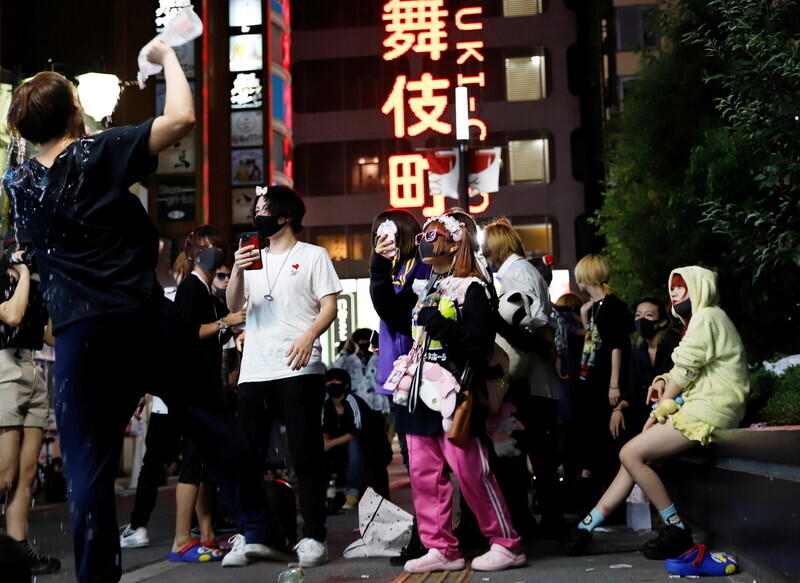
A 29-year-old working in Tokyo’s food and beverage industry thinks the Tokyo Olympics’ quarantine bubble popped before the opening ceremony was even held, and despite the ban prohibiting all restaurants and bars from selling alcohol, people aren’t complying with the ban.
“People running bars and restaurants are currently facing the crisis of their lives. They’re extremely frustrated about not being allowed to sell alcohol when the Olympics are underway. It’s only natural that many people aren’t following the rules,” the 29-year-old said.
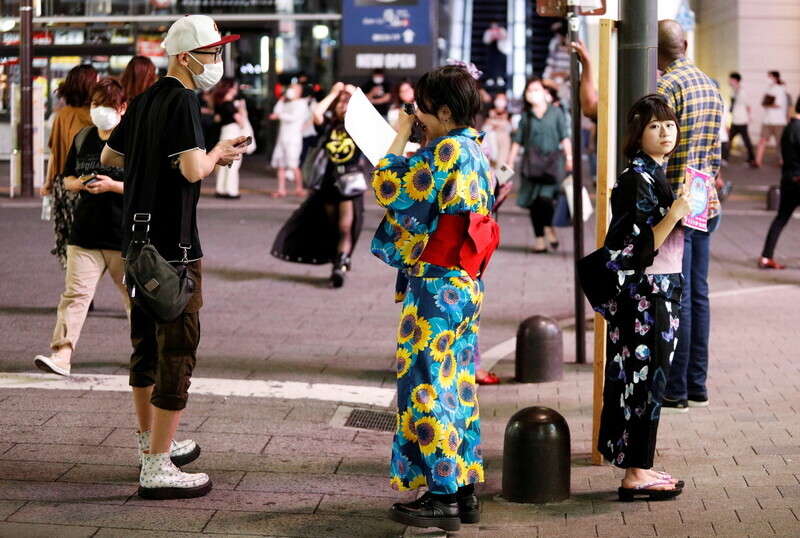
Indeed, a visitor to downtown Tokyo would have trouble believing that a state of emergency has been declared there. The outside tables in Ameyoko Market, near Ueno Station, were packed with people drinking beer even after 8 pm on Tuesday when Japan and Spain played in the soccer semifinals.
Customers could also be spotted sipping on alcoholic beverages while watching soccer on the television in some bars in Shinjuku’s Kabukicho, which is said to be the city’s biggest red-light district. Staffers were out on the streets, trying to bring in more customers, and police officers on patrol didn’t bother trying to stop them.
“The restaurant business is in a tight spot right now. We can’t just shut our doors. Anyway, the Olympics are going on, aren’t they?” said a 24-year-old working at a bar in Tokyo.
Something similar is happening at Ueno Park, which is notorious for the large number of homeless people who congregate there.
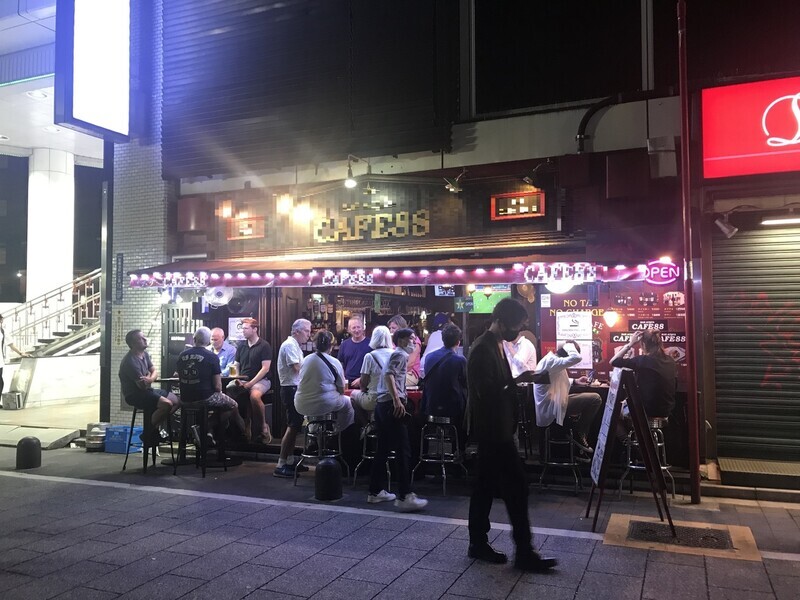
But during the Olympics, the park has been crowded not with homeless people but with drinkers. They filled every bench in the park; there were even people partying in a temple on the grounds. Men and women, young and old, were drinking in the park until the early hours of the morning.
That was the moment when I witnessed the epicenter of all the noise I’d heard every day outside my hotel window during my quarantine.
The BBC reported that the Japanese government had banished street people for the Olympics. It looks like drunken revelers have taken their spots.
Tokyo Governor Yuriko Koike provoked anger when she called on city residents to double down on disease control measures.
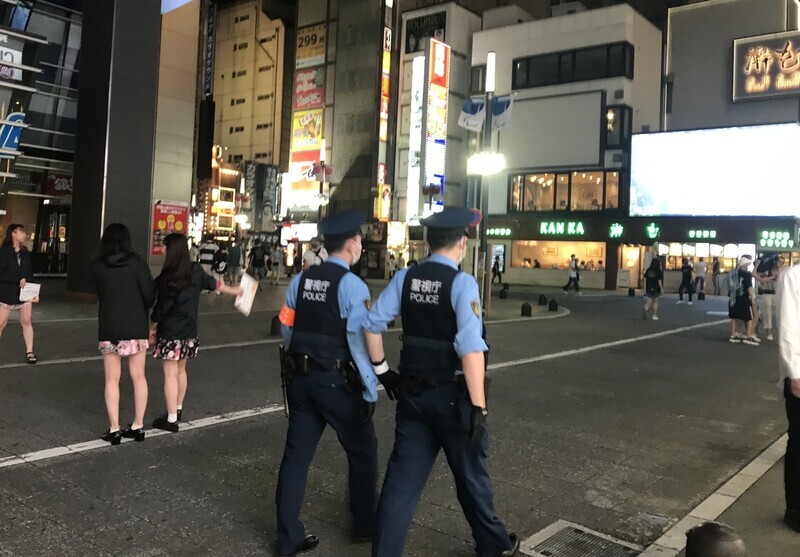
“I would ask Tokyo citizens and small business owners to redouble their disease control measures,” Koike told reporters in front of the Tokyo Metropolitan Government Building on Sunday. That prompted ordinary Japanese to ask the government to “justify its decision to go ahead with the Olympics” and remark that it was “absurd to expect people to hunker down when there’s a festival going on next door,” Japanese wire service Kyodo News reported on Tuesday.
Tokyo’s daily tally of COVID-19 cases rose from 502 on July 12 to 1,359 on July 23, the day of the opening ceremony. By Saturday, nine days into the games, the caseload had surged to 4,058.
Tokyo’s caseload dropped to 2,195 on Monday, but that was still the city’s highest total for a Monday, when cases tend to be lower because less testing is done over the weekend. That was the first time Monday cases had been above 2,000.
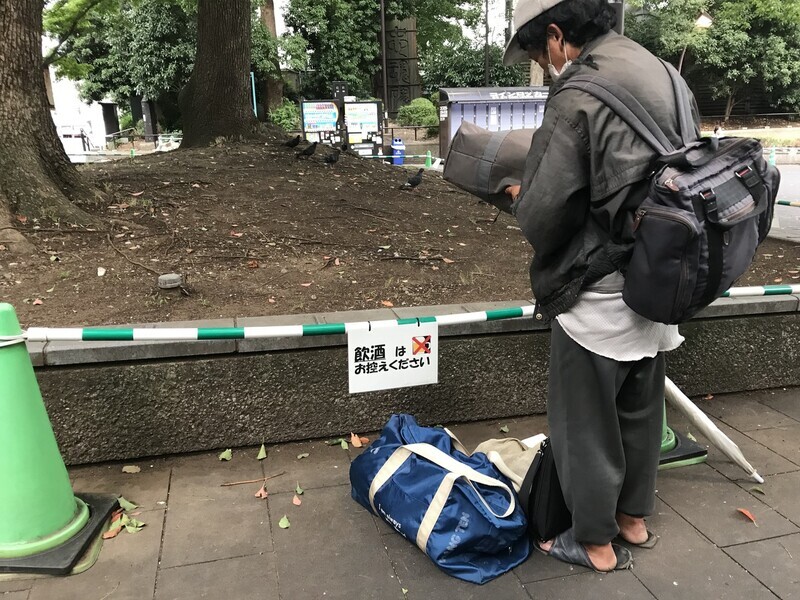
Debate is intensifying about a potential link between the Olympics and the surge in cases. Koike and Prime Minister Yoshihide Suga both insist the Olympics is unrelated to the rising caseload.
But criticism continues to mount, including a tweet by Yukio Hatoyama.
“COVID-19 cases in Tokyo are climbing higher than expected. Is this country falling into the abyss along with its gold medals?” the former prime minister wrote.
By Lee Jun-hee, staff reporter
Please direct comments or questions to [english@hani.co.kr]

Editorial・opinion
![[Editorial] Intensifying US-China rivalry means Seoul must address uncertainty with Beijing sooner than later [Editorial] Intensifying US-China rivalry means Seoul must address uncertainty with Beijing sooner than later](https://flexible.img.hani.co.kr/flexible/normal/500/300/imgdb/original/2024/0517/8117159322045222.jpg) [Editorial] Intensifying US-China rivalry means Seoul must address uncertainty with Beijing sooner than later
[Editorial] Intensifying US-China rivalry means Seoul must address uncertainty with Beijing sooner than later![[Column] When ‘fairness’ means hate and violence [Column] When ‘fairness’ means hate and violence](https://flexible.img.hani.co.kr/flexible/normal/500/300/imgdb/original/2024/0516/7417158465908824.jpg) [Column] When ‘fairness’ means hate and violence
[Column] When ‘fairness’ means hate and violence- [Editorial] Yoon must stop abusing authority to shield himself from investigation
- [Column] US troop withdrawal from Korea could be the Acheson Line all over
- [Column] How to win back readers who’ve turned to YouTube for news
- [Column] Welcome to the president’s pity party
- [Editorial] Korea must respond firmly to Japan’s attempt to usurp Line
- [Editorial] Transfers of prosecutors investigating Korea’s first lady send chilling message
- [Column] Will Seoul’s ties with Moscow really recover on their own?
- [Column] Samsung’s ‘lost decade’ and Lee Jae-yong’s mismatched chopsticks
Most viewed articles
- 1[Editorial] Transfers of prosecutors investigating Korea’s first lady send chilling message
- 2[Column] US troop withdrawal from Korea could be the Acheson Line all over
- 3[Column] When ‘fairness’ means hate and violence
- 4Xi, Putin ‘oppose acts of military intimidation’ against N. Korea by US in joint statement
- 5[Editorial] Intensifying US-China rivalry means Seoul must address uncertainty with Beijing sooner t
- 6[Exclusive] Unearthed memo suggests Gwangju Uprising missing may have been cremated
- 7‘Shot, stabbed, piled on a truck’: Mystery of missing dead at Gwangju Prison
- 8China calls US tariffs ‘madness,’ warns of full-on trade conflict
- 9China, Russia put foot down on US moves in Asia, ratchet up solidarity with N. Korea
- 10Putin’s trip to China comes amid 63% increase in bilateral trade under US-led sanctions